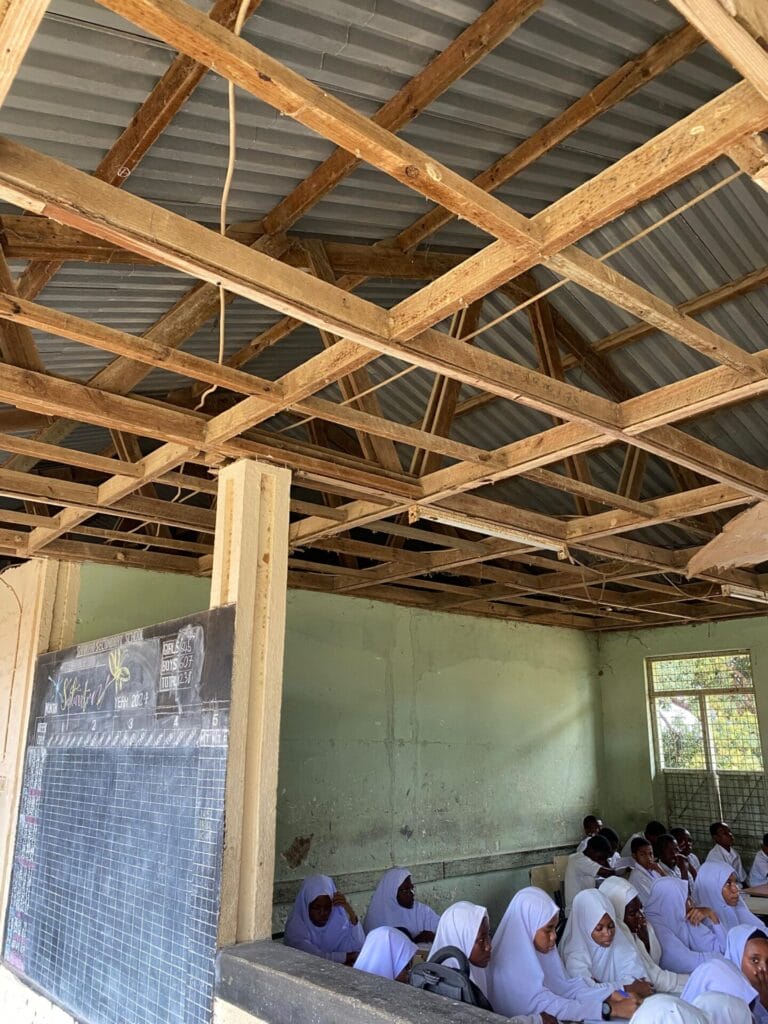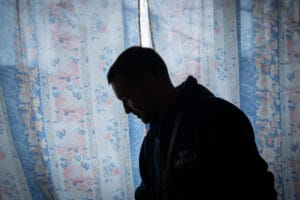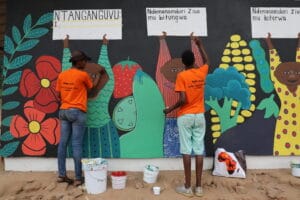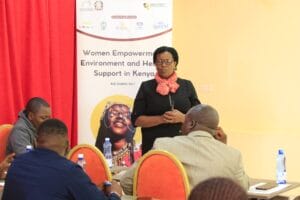
Thumaiyah Yusuf is an 11-year-old student at Ngombeni A Primary school in Kusini Pemba, Tanzania. She is a young girl with a heart full of hope, eager to share her story.
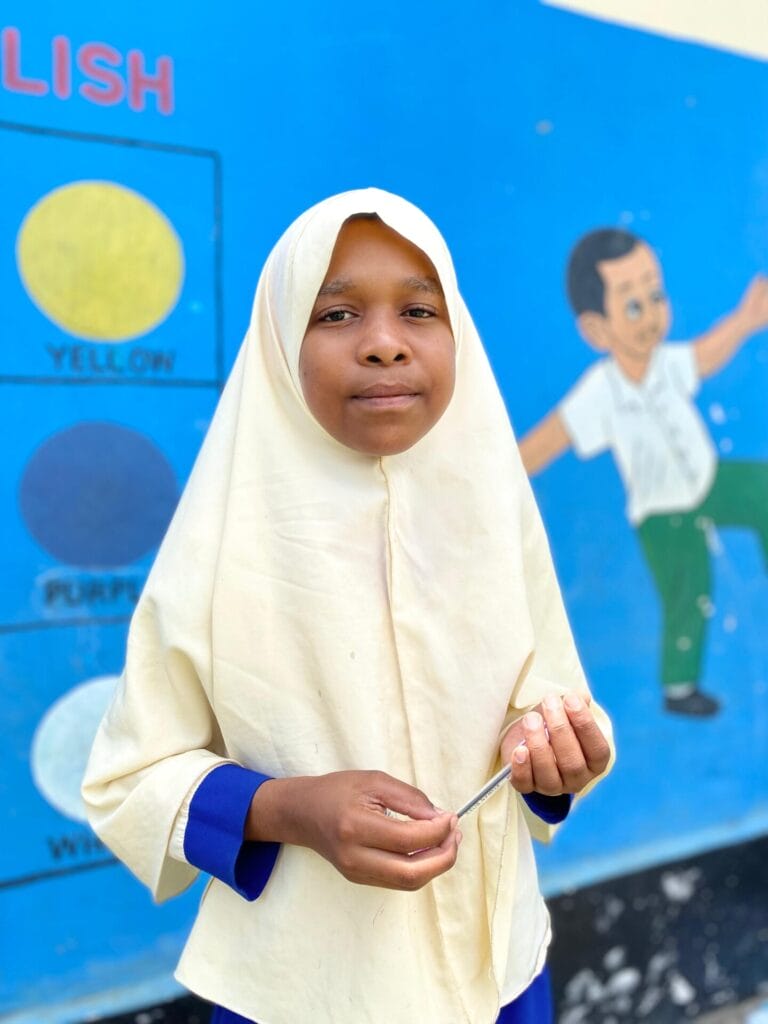
Getting an education has become somewhat difficult for Thumaiyah and her friends - not because of the lessons themselves, but because of the environment around them.
As she recounts their daily struggles, her voice trembles with emotion: Many classrooms in her school don’t have proper ceilings - she explains - and when it rains, the sound of water pounding on the roof makes it hard to hear the teacher, disrupting the lessons. When the rain stops, scorching heat fills the classroom, making it uncomfortable for students like Thumaiyah to concentrate. She often struggles to stay focused, feeling drained even before the lessons start.
Beyond the classroom, the school environment poses additional dangers. Soil erosion has created uneven paths that become slippery and hazardous in the rain, making it difficult for students to move around safely.
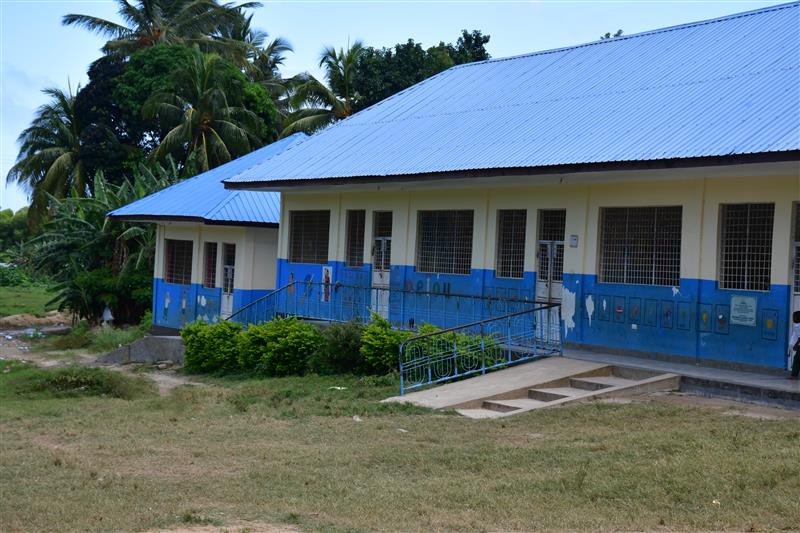
Being a girl brings its own set of challenges. Thumaiyah pauses to gather her thoughts - when she speaks again, her eyes are filled with frustration: "When my classmates and I go to the toilet," she explains, "there’s no water, only soil. We have to use soil to clean ourselves." The reality of using dirt instead of water weighs heavily on her. She shares how easily girls fall sick in such conditions, how much more vulnerable they are compared to boys.
She goes on to speak on behalf of all her classmates, asking for a simple but vital improvement: a proper place to throw garbage.
"In my school, the environment isn’t safe," she explains. "If we continue like this, we’ll get sick, and that will affect not just me, but all my friends too."
Her plea for a cleaner, safer environment is clear and deeply moving.
Water scarcity is another significant obstacle, affecting many schools in Pemba. Thumaiyah explains that water flows to her school just once or twice a week, leaving over 900 students at Ng’ombeni A & B Primary School struggling to meet their basic needs. "We don’t have enough water in the tanks," she says, her voice heavy with concern. "Without clean water, how can we stay healthy?"
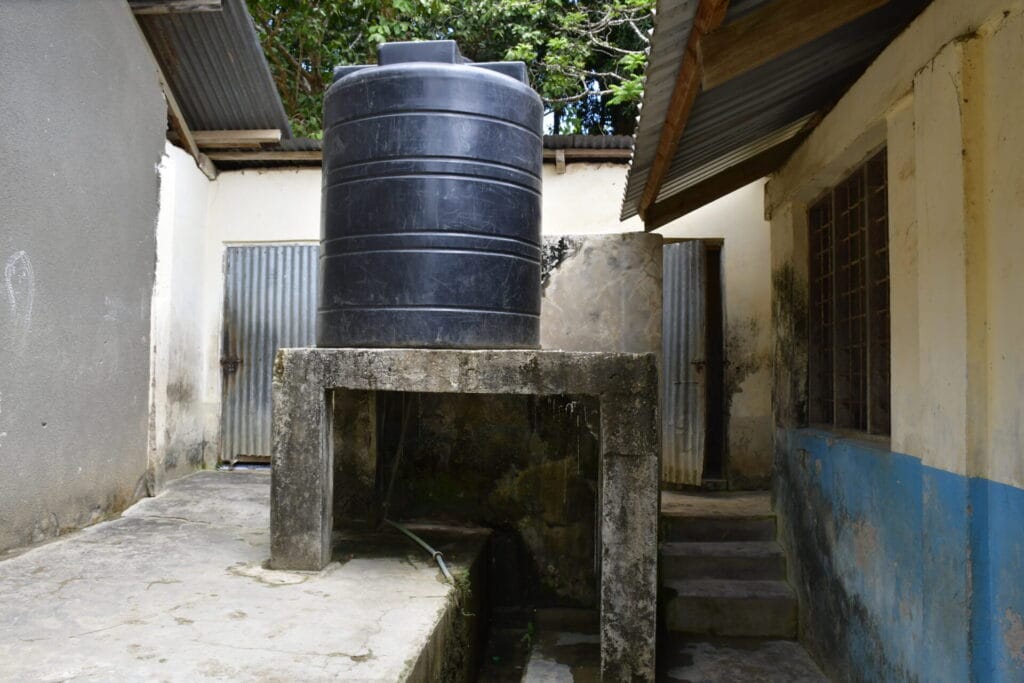
Thumaiyah’s story is a plea for change. Not just for her, but for all the girls who face the same daily hardships, those who fight to learn in difficult environments, those who are worried about getting sick because of poor sanitation, and those who simply want a chance to grow in a safe, clean space.
Her words echo a truth too often ignored: education is not just about books and lessons; it is also about the right to learn in a healthy and supportive environment. For Thumaiyah and so many others, this is still a dream waiting to come true.
In response to Thumaiyah’s heartfelt plea, WeWorld, in collaboration with LVIA and PIRO, is implementing the KIJANI PEMBA project, co-funded by the European Union. This initiative promises transformative changes for schools like Thumaiyah’s. Plans include installing ceiling boards in classrooms, constructing eco-friendly toilets that require less water, and creating safer, erosion-resistant pathways. Additionally, the project will address water scarcity by installing rainwater collection systems and sustainable sanitation facilities. Efforts will also focus on waste management, reducing packaging, and encouraging recycling, along with environmental education programs.
Thumaiyah’s dream of a safe, supportive learning environment is closer to becoming a reality, thanks to these initiatives. Her story shines a light on the urgent need for change in order to give children the education they deserve.
